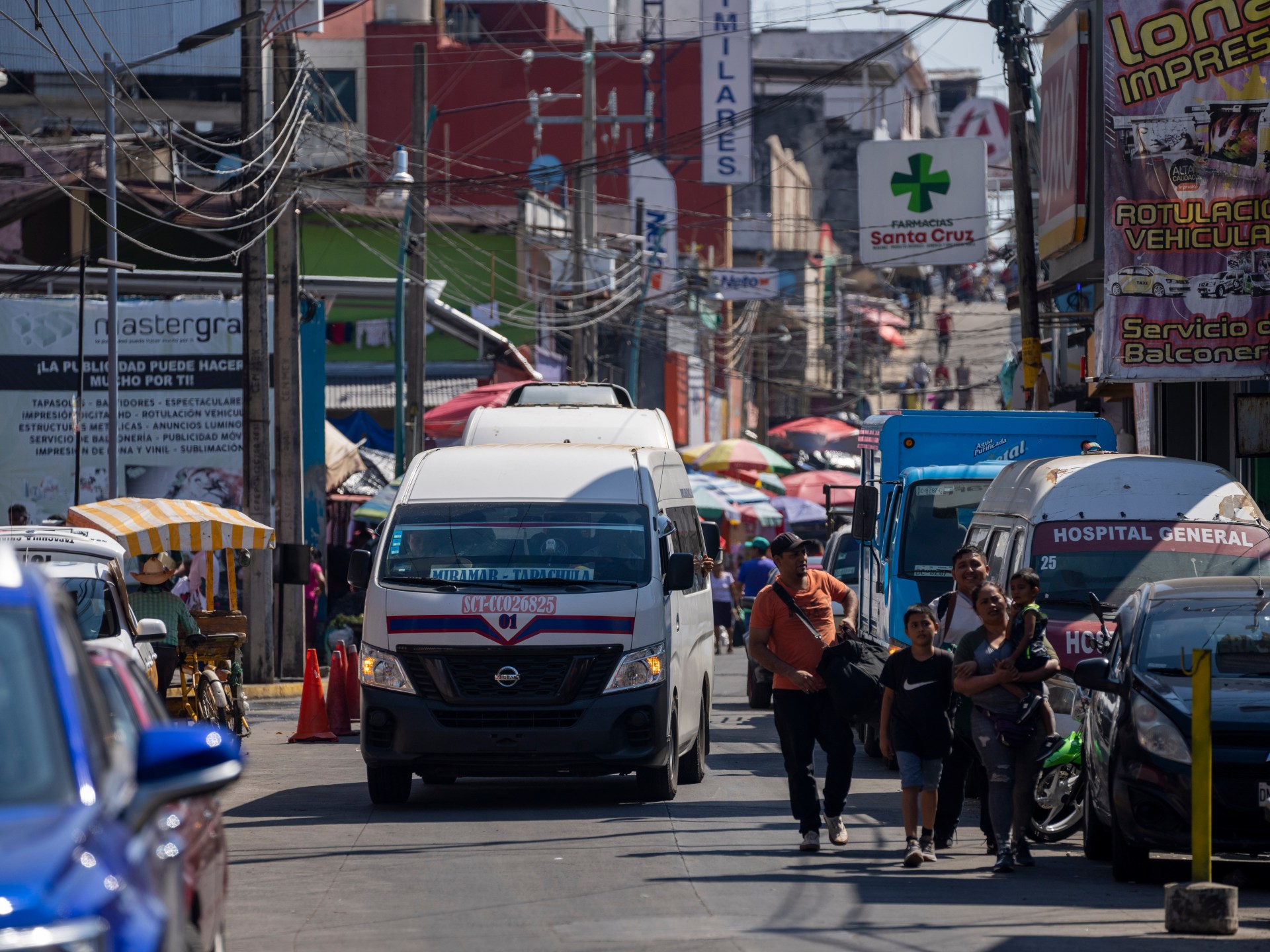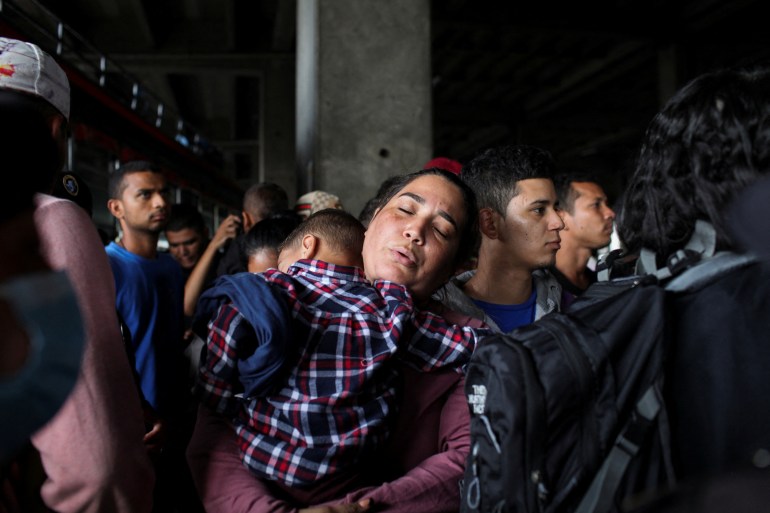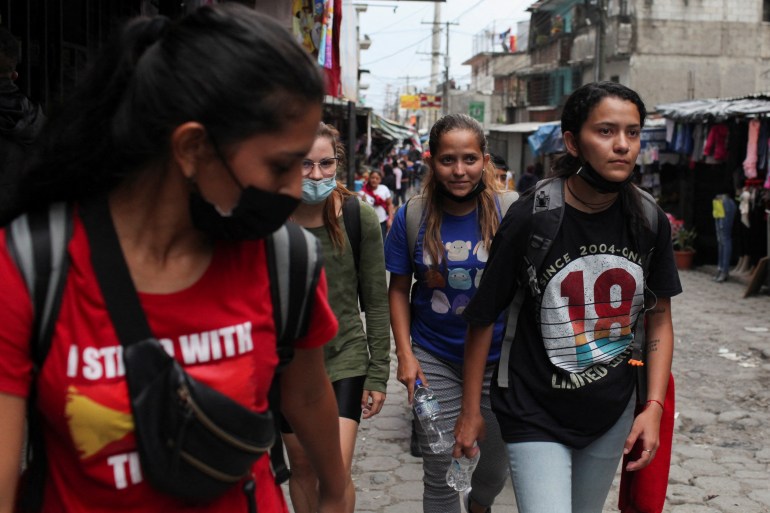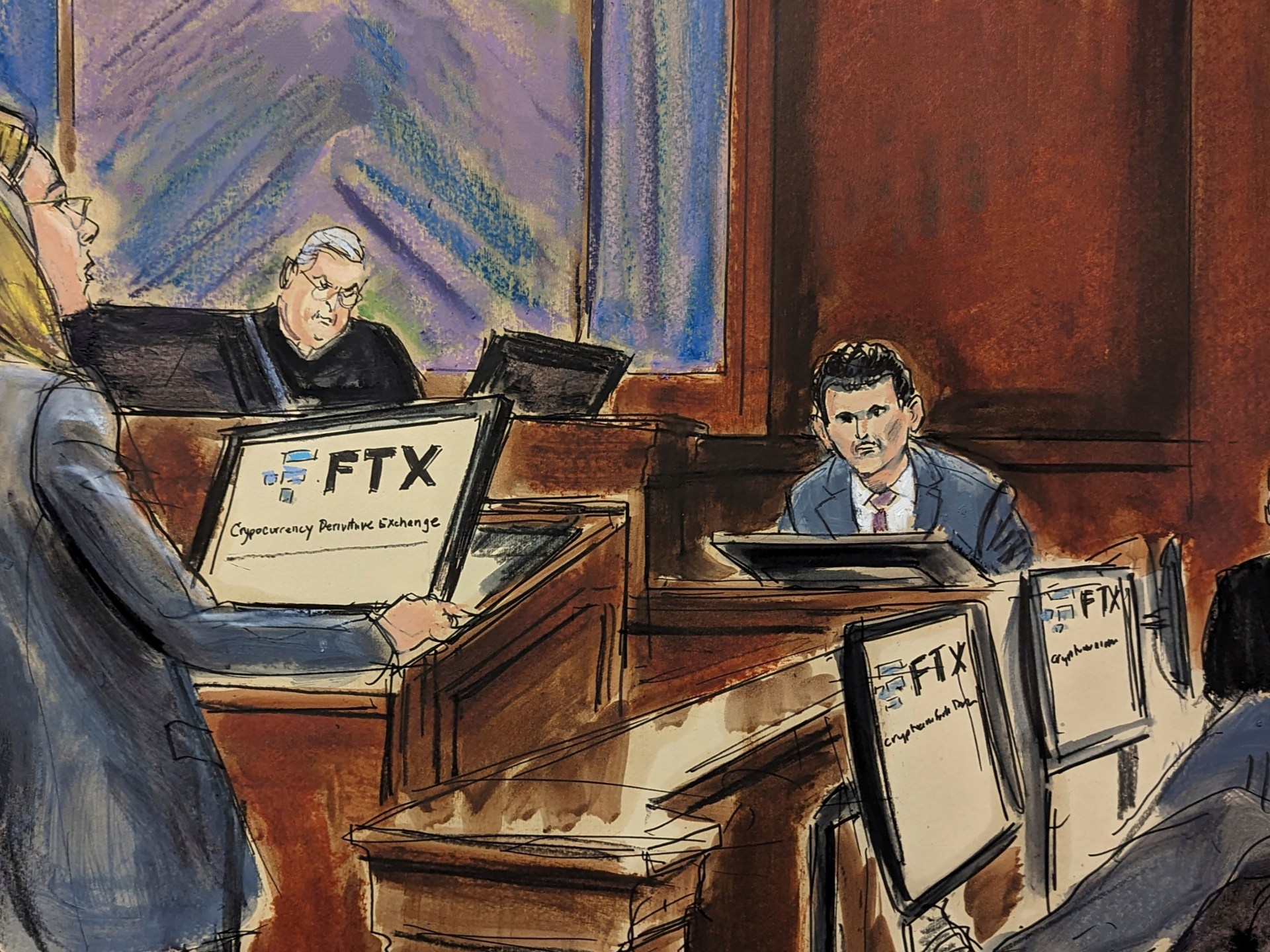
Tapachula, Mexico – Luis Alfredo Rodriguez held his young son’s hand as he walked down a busy street near Tapachula’s central square, asking passersby for money.
The 27-year-old Venezuelan migrant had entered the Mexican border town just hours earlier with seven of his relatives, including his wife and children.
But they arrived with no money, Rodriguez explained. Everything they had was lost to extortion as they traveled north through neighboring Guatemala.
“At every police checkpoint, the police asked for money,” Rodriguez told Al Jazeera, his brow furrowed in worry as he kept an eye on his children. “It was a lot of money.”
Hundreds of thousands of migrants and asylum seekers like Rodriguez pass through Guatemala every year on their way through Central America to the southern border of the United States.
But many report that the country is one of several hotspots for blackmailas officials and security forces target travelers with pay-for-passage schemes.
Al Jazeera interviewed 25 migrants in Guatemala City and Tapachula for this story, all of whom said they were victims of extortion while in Guatemala.
For Rodriguez, the experience reduced his meager savings to nothing. He and his family passed through five police checkpoints, and at each of them officers demanded extortion fees ranging from 30 to 150 quetzales – about $4 to $20 per bribe.
Rodriguez said police threatened to turn his family over to immigration officials and deport them south to Honduras. “If you don’t pay, they say they’ll give you back,” he explained.
He was one of several migrants and asylum seekers who described Guatemala as the most difficult country he crossed through and described it as even more challenging Darien Gapa notoriously dangerous stretch of jungle between Colombia and Panama.
“I think going through Guatemala is more difficult and a more difficult experience,” said Martina, a 30-year-old migrant from El Progreso, Honduras, who asked to use a pseudonym in her interview with Al Jazeera.
She reported being forced to pay 500 quetzales – about $65 – at a police checkpoint outside the capital, Guatemala City.
“They demand money to pass,” she explained. “Because if not, they can send you back to Honduras. They scare you so you have to give them money.”

Extortion schemes have long been a problem in Guatemala, according to Eduardo Woltke, a migrant rights defender in the country’s human rights ombudsman’s office.
But Woltke told Al Jazeera that the problem had recently gotten worse. He has received reports that officials abused their positions not only to force payments, but also to force sexual acts.
Blackmail “is a recurring complaint to the police from people transiting through the country,” Woltke said. “But in recent months we have heard more about this type of violence, including allegations as serious as assault and sexual assault.”
Meanwhile, the number of potential victims continues to grow. The United Nations appreciates a Record number of people migrated north through Central America in 2023, with at least 500,000 Many migrants and asylum seekers have been registered in the Darien Gap alone.
About 22,000 people were expelled from Guatemala between January and November, according to the country’s immigration agency.
The government has been struggling for years with the question of how to combat extortion among the growing number of migrants and asylum seekers.
The allegations became so widespread that then-Secretary of the Guatemalan Congress’ Refugee Commission, Ligia Hernandez, held a meeting with officials in November 2022 to discuss the issue.
However, some in attendance dismissed questions of blackmail as unfounded rumors. “There are no specific complaints,” police director Héctor Leonel Hernández Mendoza said at the meeting, according to local media reports.

But Ligia Hernandez, who is now president of the Regional Integration Commission – a congressional body tasked with addressing concerns about regional trends – said she has heard testimony suggesting there is a network of corruption spanning the country and targets migration routes.
“Extortion takes place from the moment migrants enter the country’s borders,” Hernandez said. “To this day there is no real guideline from the [state] institutions to stop this abuse. There are no free reporting mechanisms for migrants or opportunities for immediate investigations.”
Nevertheless, in 2023 alone, 20 officers were fired for extorting migrants, said Hernandez.
Jorge Aguilar, spokesman for the Guatemalan Interior Ministry, told Al Jazeera that the national civil police had a zero-tolerance policy towards extortion.
Any official accused of extorting migrants will be investigated by the Inspector General of Police and fired if found guilty, he added.
But Woltke, the migrant rights defender, said cases often stall due to the nature of the crime.
“[Migrants] I want to leave the country as quickly as possible,” said Woltke. In the absence of the victims, the public prosecutor’s office regularly closes extortion cases, he explained.

Some migrant rights advocates also point out that corruption is an obstacle to justice in Guatemala.
This is indicated by statistics from the US Agency for International Development (USAID). 61 percent of Guatemalans believe that corruption among officials is widespread. And interference in 2023 Presidential election has drawn international attention to longstanding problems corruption in the government of Guatemala.
“Migrant brothers and sisters are suffering from the scourge of corruption that we have in Guatemala,” said German Tax, a monk who runs a Franciscan-run migrant shelter in Colonia Mezquital, a town south of Guatemala City.
“Where should they complain? Who will they file a complaint with? Then who will pay attention to him?”
Some migrants who spoke to Al Jazeera laughed uproariously when asked if they would report the extortion they suffered. They said reporting on their experiences was simply not an option.
“Maybe a complaint could be filed, but would that mean the government of Guatemala will do something?” said Hector, a 25-year-old migrant from Honduras who declined to give his last name for fear of reprisals.
He said he paid about 2,500 quetzales, more than $300, for him and his son to pass through seven different police checkpoints in Guatemala.
Still, filing a report seemed like a pointless exercise. “It wouldn’t be worth it,” said Hector, “because everything is controlled by corruption.”
Al Jazeera correspondent John Holman contributed to this report.






Recent Comments